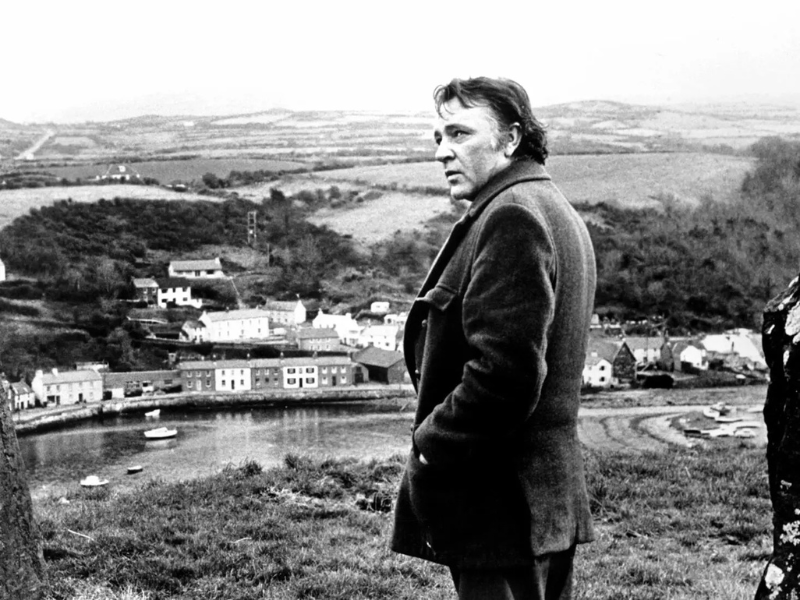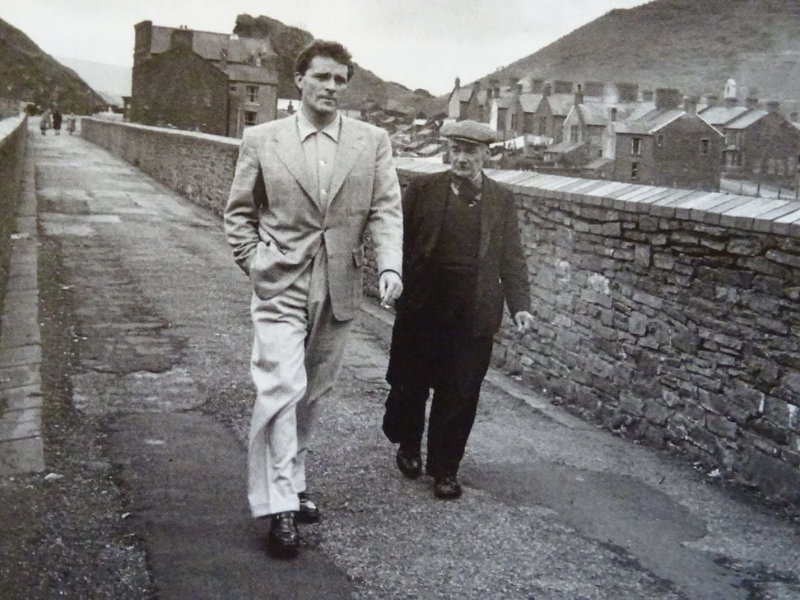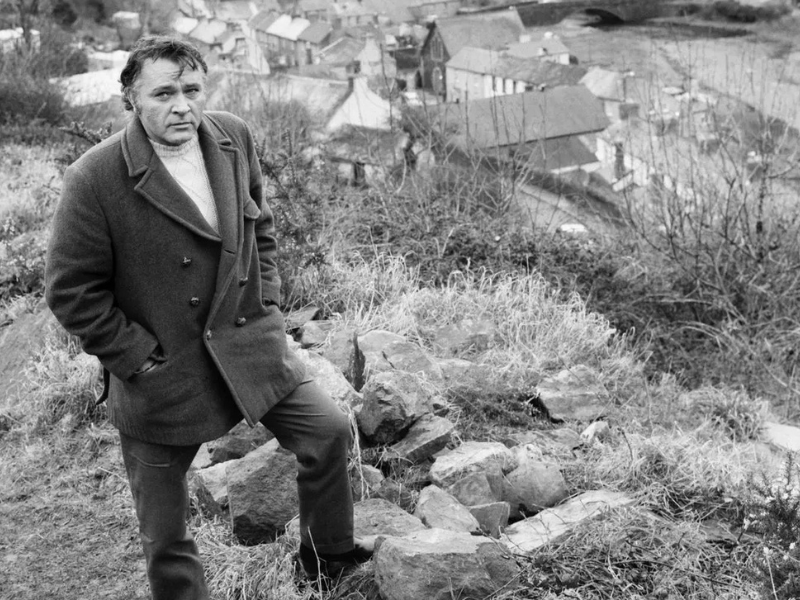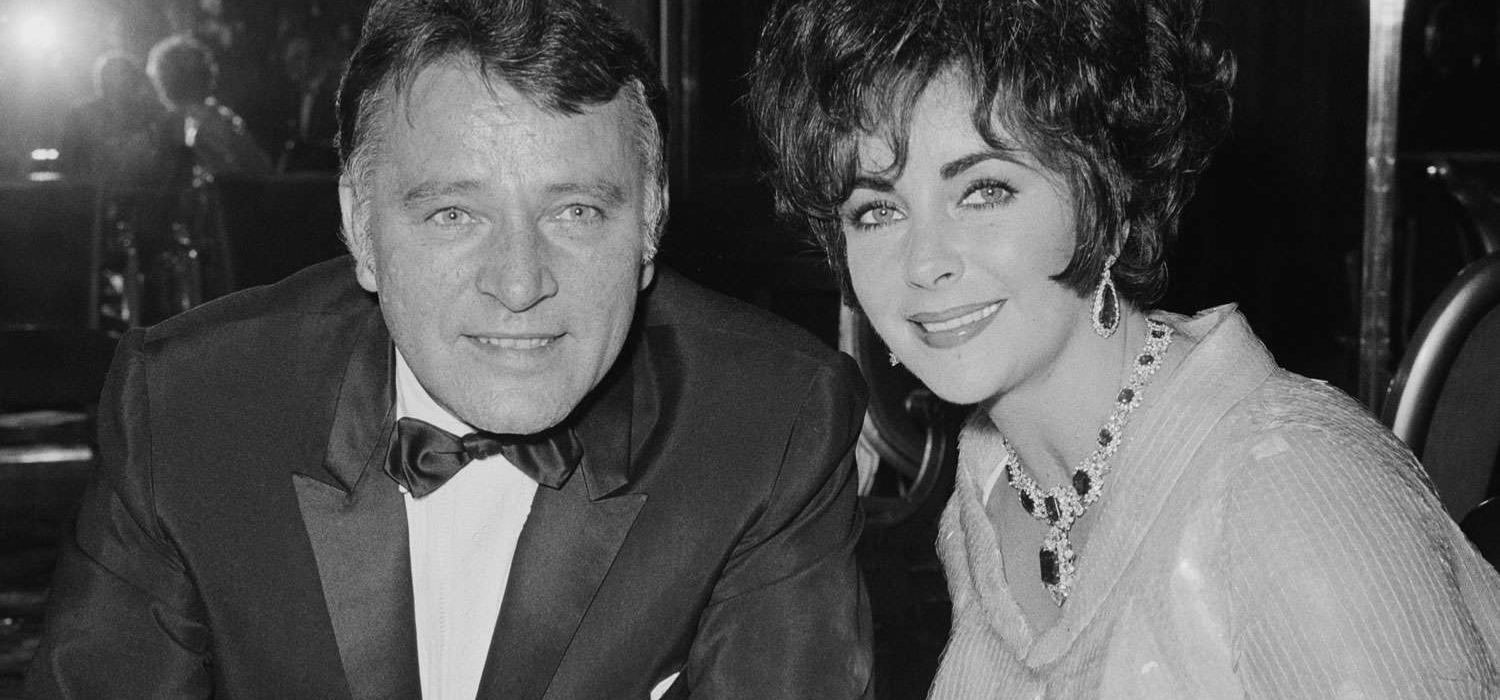Introduction: The Voice That Captivated the World
Richard Burton’s name evokes images of raw charisma, unmatched theatrical presence, and a voice often described as one of the greatest ever to grace stage and screen. From humble beginnings in Wales to the dazzling lights of Hollywood, Burton became a symbol of British talent at its finest. His career was marked not only by breathtaking performances in both classical and modern roles but also by a personal life that fascinated the public as much as his artistry.
Early Life in Wales: Roots of a Legend
Richard Burton was born Richard Walter Jenkins on November 10, 1925, in Pontrhydyfen, a small mining village in South Wales. Growing up in a working-class family, he faced hardship early in life—his mother passed away when he was only two, and his father was a coal miner who struggled with alcoholism. Despite these challenges, Burton’s natural intelligence and talent began to shine through in school, particularly in oratory and literature.
A turning point came when his teacher, Philip Burton (who later became his legal guardian and mentor), recognized his potential. Philip nurtured the young Richard’s love for language and performance, eventually helping him develop the commanding voice that would become his trademark. It was also under Philip’s guidance that Richard Jenkins took on the surname Burton—a name destined to be remembered in theatre and film history.
Education and Early Stage Experiences
Burton’s early education included a scholarship to Oxford University, where he briefly studied before his military service during World War II. After the war, he returned to pursue acting more seriously, performing in theatre productions that showcased his extraordinary vocal range and magnetic presence.
His earliest stage appearances included Shakespearean roles, where his booming, mellifluous voice left audiences spellbound. Critics quickly took note of his ability to embody both the grandeur and the emotional intensity of characters such as Hamlet and Henry V.
The Voice That Defined a Generation
Richard Burton’s voice was more than an instrument; it was a force of nature. Deep, rich, and resonant, it carried the authority of a statesman and the intimacy of a poet. Listeners described it as “liquid gold” and “the sound of thunder wrapped in velvet.” His voice set him apart from his contemporaries and helped him command attention in roles that demanded both gravitas and vulnerability.
This vocal gift made Burton a natural choice for Shakespearean theatre, but it also allowed him to transition seamlessly into film, where his delivery gave depth to characters ranging from warriors to tormented lovers.

Breakthrough on the Stage and Screen
By the late 1940s and early 1950s, Burton had begun to establish himself as a formidable presence in the British theatre scene. His performance as Prince Hal in Henry IV and his later turn as Hamlet were widely praised, cementing his reputation as one of the most exciting young talents of his generation.
In 1952, Burton starred in the film My Cousin Rachel opposite Olivia de Havilland, earning his first Academy Award nomination. His striking looks, coupled with his powerful performance, marked his arrival in Hollywood. From that point onward, Burton’s career would span across both stage and screen, bridging the gap between classical theatre and modern cinema.
Hollywood Fame and International Recognition
Burton’s transition to Hollywood in the 1950s and 1960s propelled him into global stardom. He appeared in epic films such as Alexander the Great (1956), The Robe (1953), and Cleopatra (1963), where his romance with Elizabeth Taylor became as legendary as the film itself. His ability to bring Shakespearean gravitas to mainstream roles earned him respect from both critics and audiences.
Unlike many actors of his time, Burton was not content with playing simple heroic leads—he gravitated toward complex, flawed characters, showcasing the breadth of his dramatic skill. His performances in films like Who’s Afraid of Virginia Woolf? (1966) revealed his mastery of emotional intensity and psychological depth, earning him critical acclaim and multiple award nominations.
Iconic Performances on Stage and Screen
Richard Burton’s career was shaped by an impressive list of performances that remain benchmarks in British and international acting. On stage, he became synonymous with Shakespearean theatre. His Hamlet, performed for Broadway in 1964 under the direction of John Gielgud, was hailed as one of the most memorable renditions of the role in the 20th century. Audiences and critics alike marveled at his ability to breathe both intellectual rigor and emotional vulnerability into Shakespeare’s words.
In film, Burton’s adaptability was astonishing. He could be equally compelling as Mark Antony in Cleopatra (1963), as the tormented George in Who’s Afraid of Virginia Woolf? (1966), or as the passionate Arthur in Camelot (1967). These roles highlighted not only his vocal command but also his ability to embody complex human emotions—jealousy, rage, tenderness, and despair—all with riveting intensity.
The Elizabeth Taylor Chapter: Love and Scandal
Richard Burton’s relationship with Elizabeth Taylor is one of Hollywood’s most talked-about romances. Their chemistry on the set of Cleopatra quickly turned into a passionate love affair that captivated the media. Married and divorced twice, their relationship was as fiery off-screen as it was on.
The pair became a symbol of glamour, excess, and tragedy, often splashed across tabloids. Yet, beyond the scandals, their relationship produced unforgettable on-screen collaborations. Together, they starred in 11 films, including The Taming of the Shrew (1967) and Who’s Afraid of Virginia Woolf? (1966). The latter not only earned Taylor an Academy Award but also showcased Burton at his finest, with a performance critics still cite as one of his most powerful.
Their love story, filled with passion, fights, reconciliations, and eventual heartbreak, defined an era in Hollywood. While their personal life often overshadowed their professional work, it also added to Burton’s aura as a larger-than-life figure.
Awards and Nominations: Recognition and Frustration
Richard Burton received an astonishing seven Academy Award nominations over his career, but he never won a competitive Oscar—an omission often considered one of the great injustices in Academy history. His nominations spanned films like My Cousin Rachel (1952), Becket (1964), The Spy Who Came in from the Cold (1965), and Equus (1977). Each role demonstrated his ability to shift between genres and deliver nuanced performances.
Despite never winning an Oscar, Burton did receive critical acclaim worldwide. He won Golden Globe Awards, BAFTAs, and a Grammy, and his stage work earned him a Tony Award for Camelot. These accolades, while impressive, only partially reflected the magnitude of his talent.
Struggles with Alcohol and Inner Demons
While Burton’s voice and charisma made him a star, his personal struggles threatened to overshadow his brilliance. He battled alcoholism for much of his life, a struggle that affected both his health and his reputation. Friends and colleagues often spoke of the dual sides of Burton—the disciplined actor who could deliver a flawless performance and the troubled man consumed by excess.
Burton himself was candid about his dependence on alcohol, acknowledging how it shaped—and at times hindered—his career. Yet, even in his struggles, he maintained a kind of tragic dignity that made him relatable to many. His resilience in facing these challenges became part of his myth, adding depth to the image of the flawed genius.
Career Highlights: From Shakespeare to Epic Cinema
Burton’s career featured an extraordinary range of highlights that reflected his versatility. In Becket (1964), opposite Peter O’Toole, he delivered one of his most celebrated performances, capturing the internal conflict of Thomas Becket with intensity and gravitas.
In The Spy Who Came in from the Cold (1965), he embraced a starkly different role, portraying a weary intelligence officer in a Cold War thriller. The performance was gritty, understated, and profoundly human, proving Burton’s ability to adapt to the demands of modern cinema.
His later work in Equus (1977) reaffirmed his mastery of stage-to-film transitions. Playing the psychiatrist Dr. Dysart, Burton explored themes of repression, passion, and madness with a haunting subtlety that left a lasting impression on audiences.

Beyond Acting: A Cultural Figure
Richard Burton was not just an actor; he was a cultural icon. His deep Welsh roots, tempestuous romances, and unforgettable performances made him a symbol of artistry and complexity. He represented both the brilliance and the contradictions of stardom, embodying the idea that great talent often comes with great turmoil.
Later Years: A Career of Resilience
Richard Burton’s later years were marked by both triumphs and challenges. While his earlier career had been fueled by the energy of youth and the excitement of newfound stardom, his later projects reflected a more seasoned, reflective performer.
Films like Equus (1977) and The Medusa Touch (1978) demonstrated Burton’s continued ability to bring psychological depth to his characters. Even as Hollywood shifted to new trends and younger stars, Burton’s performances retained a unique authority, rooted in his voice, his stage training, and his profound emotional intelligence.
Though his health declined due to years of drinking and physical strain, Burton never completely lost his command of the screen. Each late performance carried an undercurrent of lived experience, making his portrayals all the more authentic and poignant.
Burton and Elizabeth Taylor: A Final Chapter
The later years of Richard Burton’s life were also intertwined with the final chapter of his story with Elizabeth Taylor. Their relationship remained complex even after their second divorce in 1976. While both went on to remarry others, they never fully escaped the bond they shared. Friends of the couple often suggested that Burton and Taylor remained the loves of each other’s lives, despite the chaos and heartbreak.
Burton’s correspondence with Taylor during his final years revealed tenderness and longing, reflecting a relationship that transcended conventional romance. Their love story, both beautiful and tragic, is remembered as one of the most iconic pairings in Hollywood history.
Passing and Immediate Legacy
Richard Burton passed away in 1984 at the age of 58, leaving behind an enormous void in the acting world. His death shocked fans and colleagues alike, not only because of his relatively young age but also because he remained a force of nature until the end.
Tributes poured in from across the globe. Critics, fellow actors, and audiences recognized that the industry had lost one of its most distinctive voices. Burton’s death was not only the end of a career but also the closing of a chapter in British cinematic history.

Burton’s Legacy in British Cinema
Richard Burton’s legacy in British cinema is monumental. Alongside contemporaries like Laurence Olivier, John Gielgud, and Peter O’Toole, Burton defined what it meant to be a British actor on the global stage. His ability to move effortlessly between Shakespearean theatre and Hollywood blockbusters inspired generations of performers.
In Britain, Burton remains a symbol of Welsh pride. His working-class background and rise to international stardom stand as a testament to talent, determination, and cultural identity. For many, Burton’s story reflects the power of art to transcend social and economic barriers.
Influence on Modern Actors
Burton’s influence continues to ripple through the work of modern actors. His style—rooted in theatrical discipline yet infused with emotional realism—serves as a model for actors seeking to bridge stage and screen.
Figures such as Anthony Hopkins, Daniel Day-Lewis, and Kenneth Branagh have acknowledged the impact of Burton’s legacy. His voice, his fearlessness, and his willingness to embrace both heroic and deeply flawed characters paved the way for a generation of actors who saw the craft not merely as performance but as truth-telling.
The Enduring Voice of Burton
Perhaps Burton’s most enduring legacy is his voice. Deep, resonant, and unmistakable, it carried Shakespeare’s poetry, Hollywood’s grand epics, and intimate confessions with equal mastery. His ability to command an audience with the sheer power of his words remains unmatched. Even today, recordings of his performances continue to inspire both actors and audiences, ensuring that Burton’s voice will never truly fade.
Conclusion: Richard Burton, Forever a Legend
Richard Burton’s journey from a small Welsh mining town to the heights of Hollywood and Broadway is the story of a man who defied limitations and embraced his destiny. Though his life was marked by turbulence, excess, and personal struggles, his artistry remains timeless.


